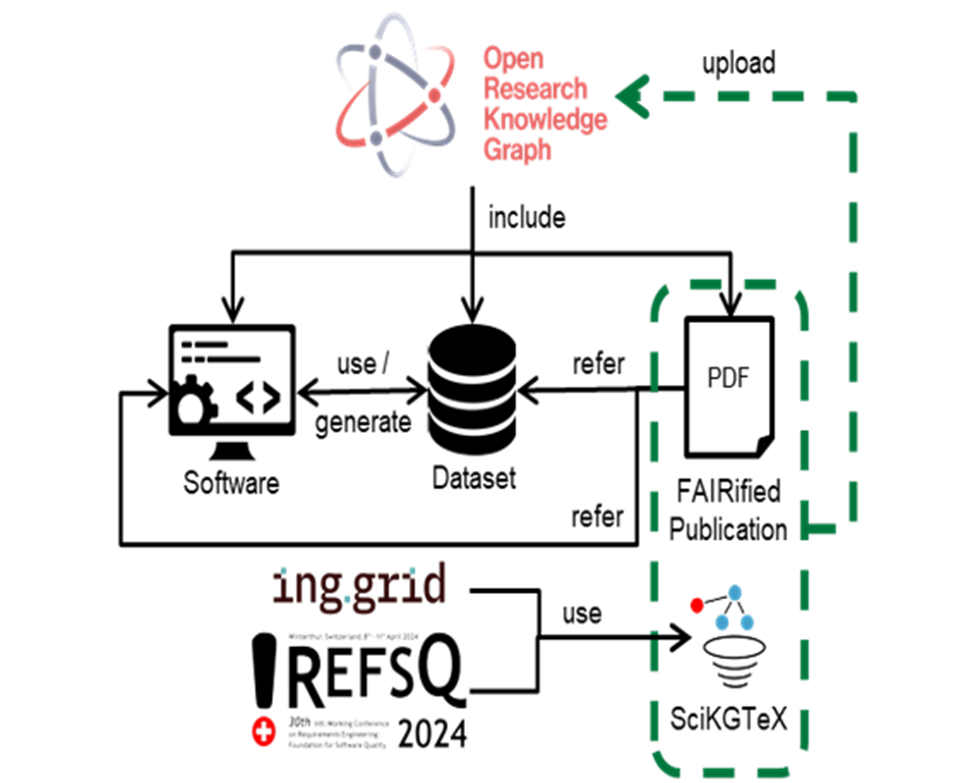SciKGTeX enables authors to create “FAIR-by-Design” publications by enriching them with FAIR information once and in parallel to the time of creation. This information is embedded into the PDF’s XMP metadata for persistent and long-term availability.

What is SciKGTeX?
SciKGTeX is a LaTeX package that is based on the idea of “FAIR-by-Design” artifacts to support the storage, access, and (re-)use of FAIR scientific information through infrastructures, such as the Open Research Knowledge Graph (ORKG). The basic approach of SciKGTeX is that authors create “FAIR-by-Design” publications by enriching them with structured, machine-actionable, and FAIR scientific information once and in parallel to the time of creation. In particular, authors can use SciKGTeX to annotate research contributions, such as research problem, objective, method, result, conclusion, and custom properties, in their LaTeX source code while writing their publication. SciKGTeX embeds this information into the XMP metadata of the generated PDF file so that the information is preserved throughout the life of the PDF file and is accessible to anyone at any time. This way of storing and accessing the information in turn allows anyone who owns the PDF file to easily (re-)use the information. The corresponding publication on SciKGTeX was awarded the Vannevar Bush Best Paper Award at the ACM/IEEE Joint Conference on Digital Libraries 2023 (JCDL 2023).
SciKGTeX, ing.grid and ORKG
The ing.grid journal already uses SciKGTeX by providing a version of its LaTeX template that integrates SciKGTeX directly for authors. In addition, the Open Science track of the 30th International Working Conference on Requirement Engineering: Foundation for Software Quality (REFSQ 2024) has included an ORKG initiative in their Open Science policy that encourages authors to annotate their submitted publications with SciKGTeX. The ORKG supports this initiative with a new feature for importing scientific information from the XMP metadata of a PDF file annotated with SciKGTeX. With this feature, researchers can quickly and easily add their described research contributions to the ORKG.
Additional Information
Link to SciKGTeX
Link to Publication
Video of ORKG Import feature
Oliver Karras
Christof Bless
Ildar Baimuratov
Patrick Kuckertz
Jan-Maris Göpfert
Tristan Pelser
Sören Auer
